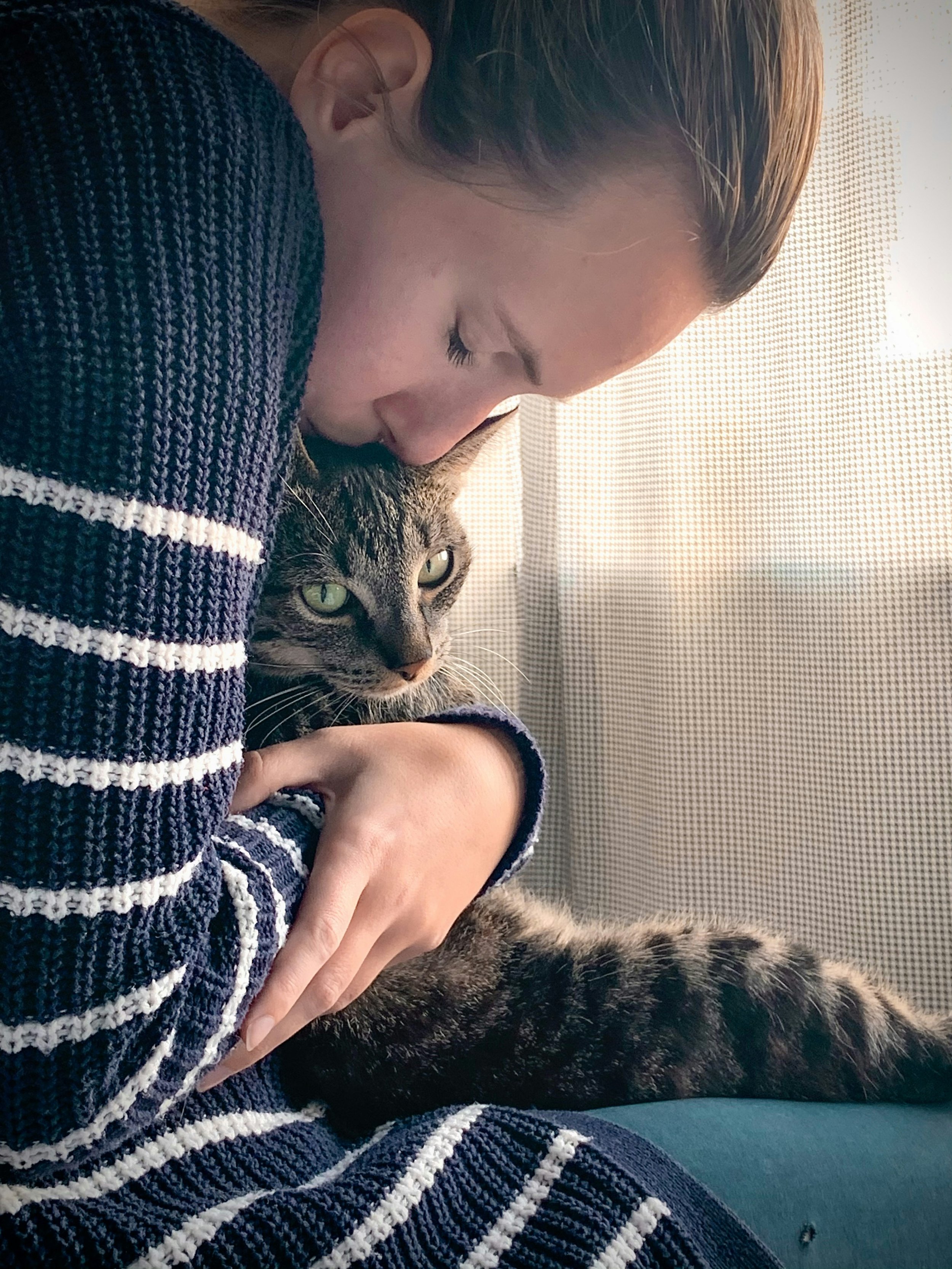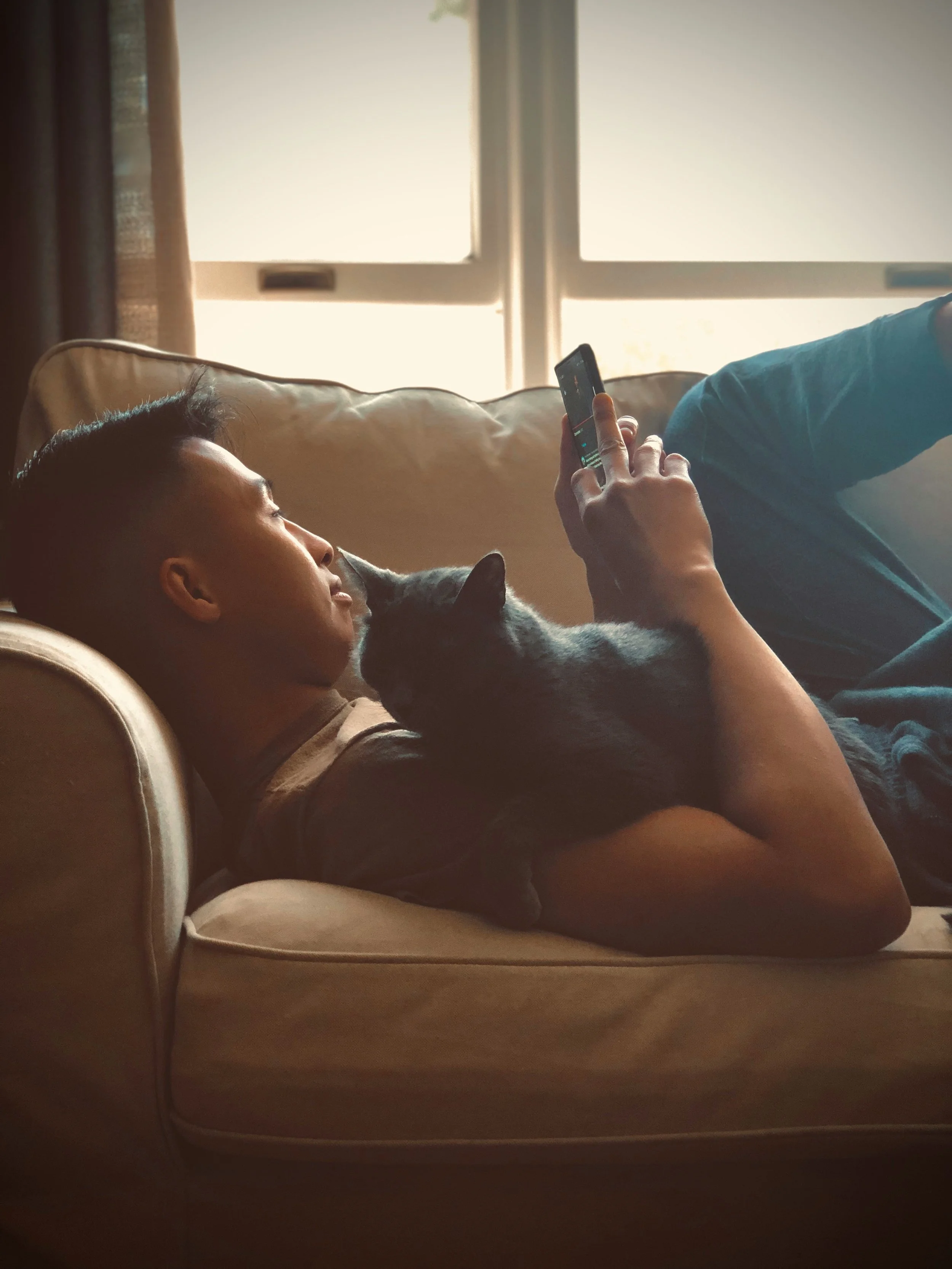
Learn more
Quality-of-life assessment
Quality-life-assessment to consider how your companion animal feels
Quality-of-life (QoL) is a compassionate and practical framework for understanding how our companion animal is coping with illness, aging, or disability. It is also useful for guiding palliative care and making end-of-life decisions.
At its core, QoL considers not just the presence or absence of symptoms, but how a companion animal feels—physically, emotionally, and socially.
Our goal is to identify where our companion is struggling in their daily experience and aim to improve their quality of life in those specific areas.
There will come a time when we are no longer able to improve or maintain our companion's quality of life in certain areas and when this happens, we must decide if their experience is overall, still in the positive. To do this, we can use a quality-of-life scale and reassess at various intervals.
The best approach to quality of life
We believe that the best approach to quality-of-life assessment and palliative care is to work directly with your family veterinarian or specialist. They are best placed to support your family.
Mulberry Lane does not offer separate Quality-of-Life Consultations. There can be situations where further diagnostic evaluations or treatments for your companion can be pursued that cannot be offered in a home setting. We would then refer you back to your family veterinarian or specialist for support which would likely incur further consultation fees. Our service offers a short consultation that includes a quality-of-life assessment as part of your meaningful goodbye.
If you require at-home care, there are registered veterinary technicians in the Lower Mainland who can assist you with your companion’s palliative care plan and treatments, and you may want to discuss this option with your primary veterinarian should you be interested.
When deciding on how your companion’s last days will look, it is important to have a good understanding of the prognosis and progression of their disease. Some diseases progress rapidly and may have a steep decline, others may be more gradual.
This understanding will help you and your family veterinarian decide on what supportive measures are most feasible for you and your companion’s situation. Importantly, you can also discuss what areas of your companion’s quality of life you do not want to see drop below a certain level.
Observing our companions
Because our companions can’t tell us how they feel, we rely on our observations to determine, whether, on balance, they are still getting some enjoyment out of life. In particular, do they still find pleasure in play, affection, and rest? Have they stopped greeting you at the door? Are they withdrawn?
Many families find it helpful to keep a journal or calendar to track “good” and “challenging” days and to note changes in their quality of life. This helps identify patterns and a trajectory over time, rather than relying on a single moment of crisis to guide decision-making.
If you are having a challenging time assessing your companion’s quality of life, it can be helpful to have several people who know them to perform a quality-of-life assessment independently and then discuss responses as a group. Again, having the input of your family veterinarian can be invaluable here if you need some reassurance that you are making the right decision.
Thoughtfully designed quality-of-life tools help prioritize both medical and emotional well-being. These assessments are not only measurements but opportunities to connect with your companion’s experience, fostering empathy. Quality-of -life assessments are also useful to guide palliative care towards areas that are deficient.
Used regularly, quality-of-life evaluations offer caregivers reassurance that they are making informed decisions. And they can help shift the focus from fear and guilt to clarity, love, and presence during this sacred chapter of their lives.
Additional resources
More help with starting the journey
Plan ahead
Planning arrangements for your companion animal and your family provides peace of mind.
Your meaningful goodbye
Create a meaningful goodbye to celebrate, and honour, your beloved companion animal’s life — your way.
Grief and loss
All losses are painful and personal. We want to normalize grief related to companion animals.






